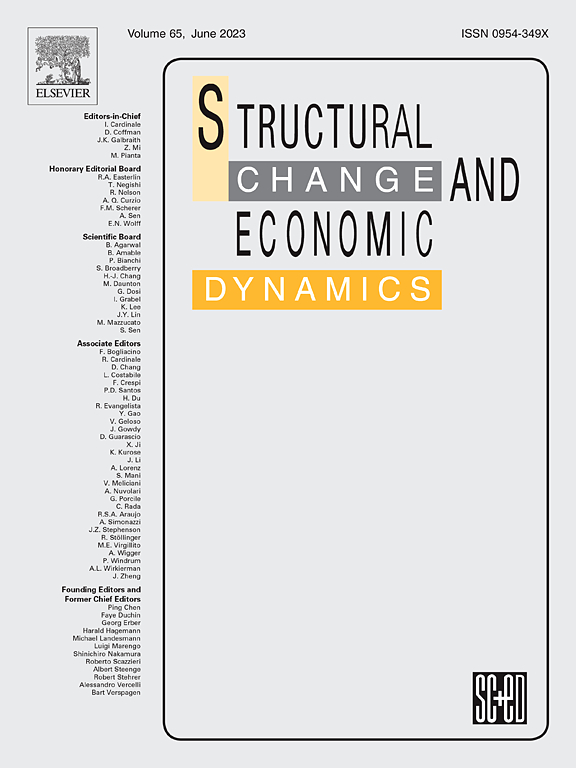Can big data aggregation help businesses save energy and reduce emissions? Quasi-natural experiment in big data comprehensive test
IF 5
2区 经济学
Q1 ECONOMICS
引用次数: 0
Abstract
Aggregating big data pieces is critical for increasing enterprise resource allocation efficiency, reducing energy usage, and lowering carbon emissions intensity. This research aims to investigate the impact of big data aggregation on energy efficiency and carbon emission intensity among Chinese enterprises. To this end, it employs primary financial data from Chinese listed companies from 2009 to 2021 and carbon emissions data disclosed in social responsibility reports, sustainable development reports, and environmental reports. The findings revealed that the aggregation of big data elements dramatically reduces the intensity of carbon emissions in firms in the pilot regions. The decrease effect is more effective in economically developed places and regions with higher degrees of digitization, particularly for organizations in high-energy-consuming industries, and it is more robust for small and non-state-owned businesses. The aggregation of big data elements mainly aids firms in pilot regions in lowering energy consumption and emissions by increasing technical innovation and energy usage efficiency. To create a new national competitive advantage, we should actively promote the gradual expansion of the comprehensive pilot zone for big data, advance the in-depth application of big data in environmental governance, and better capitalize on the dividends of big data aggregation.
大数据聚合能帮助企业节能减排吗?大数据综合测试中的准自然实验
聚合大数据对于提高企业资源配置效率、减少能源消耗、降低碳排放强度至关重要。本研究旨在探讨大数据聚合对中国企业能源效率和碳排放强度的影响。为此,本文采用了2009年至2021年中国上市公司的原始财务数据,以及社会责任报告、可持续发展报告和环境报告中披露的碳排放数据。研究结果表明,大数据要素的聚集显著降低了试点地区企业的碳排放强度。在数字化程度较高的经济发达地区和地区,特别是高能耗行业的组织,这种下降效应更为明显,对小型和非国有企业的下降效应更为强烈。大数据要素的集聚,主要是通过提高技术创新和能源利用效率,帮助试点地区企业降低能耗和排放。要积极推进大数据综合试验区逐步扩大,推进大数据在环境治理中的深度应用,更好发挥大数据集聚的红利,打造国家竞争新优势。
本文章由计算机程序翻译,如有差异,请以英文原文为准。
求助全文
约1分钟内获得全文
求助全文
来源期刊

Structural Change and Economic Dynamics
ECONOMICS-
CiteScore
9.60
自引率
4.90%
发文量
159
期刊介绍:
Structural Change and Economic Dynamics publishes articles about theoretical, applied and methodological aspects of structural change in economic systems. The journal publishes work analysing dynamics and structural breaks in economic, technological, behavioural and institutional patterns.
 求助内容:
求助内容: 应助结果提醒方式:
应助结果提醒方式:


